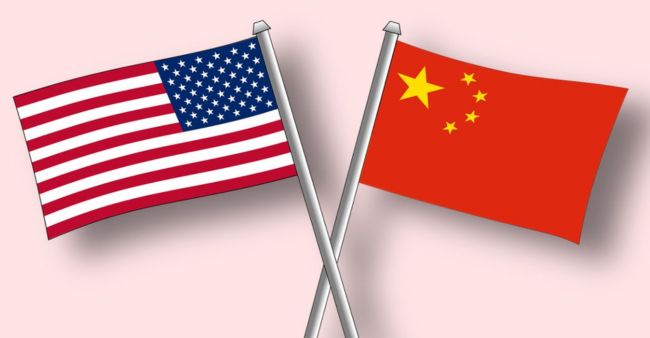Henry Kissinger, former US Secretary of State and National Security Advisor under two previous Republican Administrations, sprang a surprise by visiting China and receiving a very warm welcome by top officials of the Xi Jinping Administration on 19 July 2023. He had stunned the world more than fifty years ago by visiting China in July 1971 to arrange President Richard Nixon’s visit to China.
The paradigm of global politics got transformed starting with Kissinger’s first visit to China and the subsequent evolution of US-China relations. It is common knowledge that but for Kissinger’s diplomatic initiatives, China would not have emerged as an economic powerhouse, military power and, most significantly, a challenger to the US position in the world.
China was an economically developing country in 1971 when Kissinger sought to improve ties with China to make it a bulwark against Soviet expansionism in the midst of the Cold War. Now Kissinger has made his second unannounced visit to restore friendly ties with China amidst the Ukraine War and inability of the United States to stem Russia’s war in Ukraine despite massive sanctions and colossal arms assistance to Ukraine.
The US goal then was to further enlarge Sino-Soviet rift and the US ambition now is to prevent Sino-Russian partnership from becoming too close. China has not supported the US policy on Ukraine War, Xi Jinping has maintained closer relationship with Russian President Vladimir Putin, but has refrained from extending military supplies to Russia. If Beijing would do that, Ukraine would become deep proxy battleground between the US and Russia. Such a development would help Putin prolong the war and cause hardship for the US to weaken Russia. By implication, Europe would remain a new Cold War hotspot and create complications for the trans-Atlantic relationship.
It is noteworthy that the US and China, since the Trump Administration, are fighting an economic Cold War with each other. President Trump began it and President Joe Biden has intensified it. The economic tug of war has now got extended to the field of advanced technology, even as the Biden Administration seeks to deny technology and equipment related to semiconductor, quantum computing and Artificial Intelligence.
Moreover, the economic conflict spilled over into strategic and political dimension when then Speaker of US of House of Representatives, Nancy Pelosi, visited Taiwan to back the pro-independence President Tsai Ing-wen. China fiercely opposed the visit and angrily responded by conducting intense live fire military drill threatening to blockade Taiwan. Moreover, sanctions on China’s Defence Minister Li Shangfu imposed by the Trump Administration for buying Russian fighter aircraft and missiles are still in place and the incensed Chinese government has cut off military communication with the US.
The US-China tension has played out its dynamics in the Indo-Pacific making it difficult for countries to take sides in a conflict between their strategic partner, the United States, and the economic partner, China. But Chinese assertiveness and aggressiveness in the Indo-Pacific also led to revival and strengthening of Quad or Quadrilateral Security Dialogue among the US, India, Japan and Australia and signing of a tripartite pact by the US, the UK and Australia called AUKUS.
Kissinger’s unannounced visit may be a surprise to the world, but not to the Biden Administration. The State Department has called it a private visit by Henry Kissinger suggesting no connection with the Administration’s policy. But then, the Biden Administration had also politically distanced itself from Nancy Pelosi’s visit to Taiwan.
China understands the significance of Kissinger’s visit and his meeting with Defence Minister Li Shangfu and top diplomat Wang Yi, Director of the Office of Foreign Affairs Commission of the Central Committee of the Chinese Communist Party. Could such a meeting be described as private meeting? Yes, private in form and official in content.
In fact, there is a realisation in both Washington and Beijing that their bilateral tension has caused enormous damage to their interests and that delayed normalization would only escalate the cost. There have been indications in recent times how both the Biden Administration and the Xi Jinping government have been keen to normalize the relationship while avoiding the impression of capitulation.
The political game of chicken is clearly visible in a series of US high officials, such as the Secretary of State Antony Blinken, Secretary of Treasury Janet Yellen, former Secretary of State and Climate Envoy John Kerry visiting China and Chinese Ambassador visiting the Pentagon in an effort to restore military communication between the two countries. The reason why China refused a meeting between US Defence Secretary Lloyd Austin and Defence Minister Li Shangfu at Shangri la Dialogue Forum in Singapore was the continuing US sanction against Shangfu since 2018. And the reason why Shangfu met Henry Kissinger and the Chinese Ambassador Xie Feng met US Assistant Secretary of Defence Ely Ratner in the Pentagon is an apparent willingness on their part to resume military communication.
Sooner than later US-China tension will make way for a more normal relationship. But it is going to be a slow and steady process. Significantly, it will result in strategic competition, though not conflict. What kind of impact it will have on Quad, AUKUS, South China Sea, Taiwan Strait and US ties with treaty allies and strategic partners requires a close watch.
However, Russia will be the loser in any improved ties between China and the US. The lesson for India needs deeper cogitation. No country desires US-China open conflict, but all countries have cause to be concerned about the uncertainty surrounding US-China bonhomie.
Chintamani Mahapatra is Hon. Chairperson, Kalinga Institute of Indo-Pacific Studies; formerly Professor at JNU.

